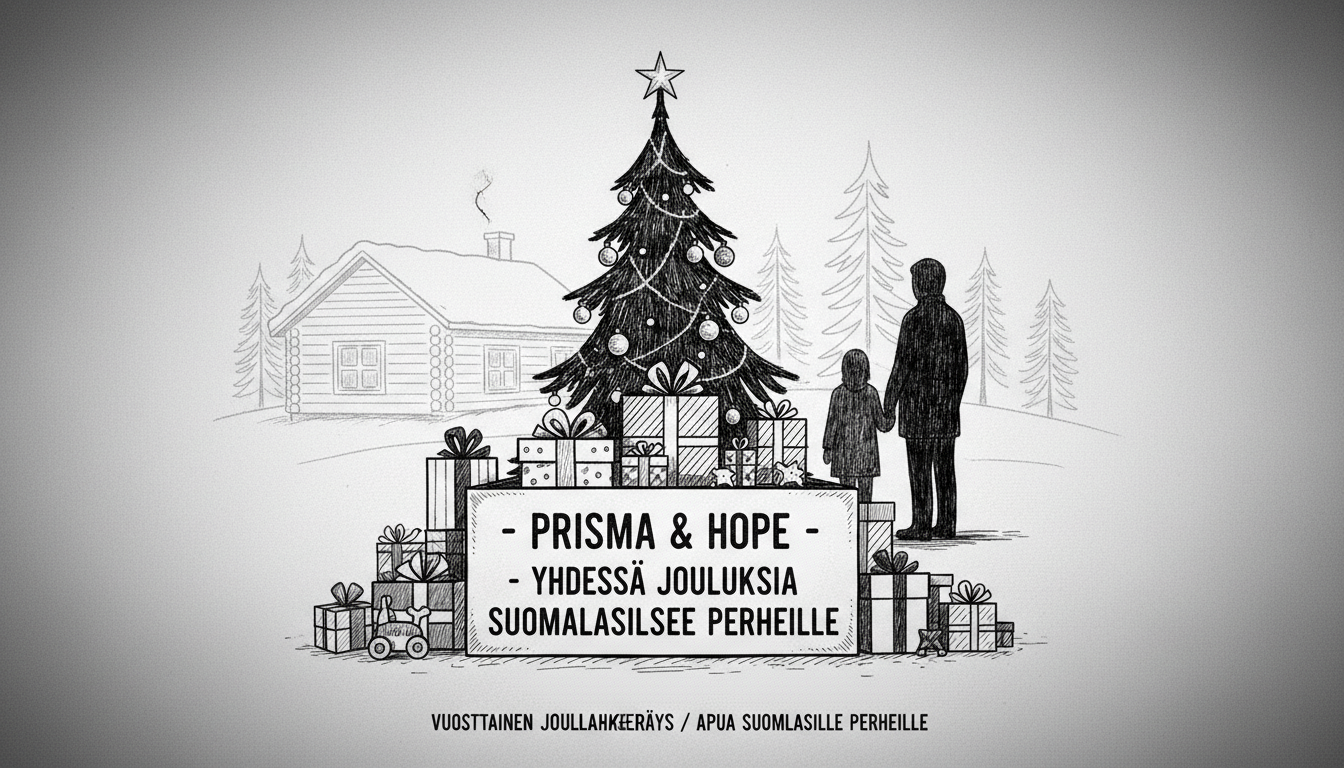Finnish retail giant Prisma and charity organization Hope have launched their eighth consecutive Christmas gift collection campaign. The initiative allows customers to donate gifts through Prisma stores, which Hope then distributes to low-income families with children across Finland.
The holiday gift drive runs from Tuesday, November 18th through Wednesday, December 3rd. During this period, shoppers can participate through Prisma's online store, where Hope has compiled age-specific wish lists to guide donations.
Christmas assistance has become increasingly crucial for many Finnish families this year. The need for support among families with children has grown substantially throughout the current year, according to official statements. This reflects broader economic pressures affecting households nationwide.
Virpi Viinikainen, Director of SOK Market Trade, explained the practical implementation. The online store features categorized wish lists organized by age groups, making it simple for donors to select appropriate gifts. This systematic approach ensures children receive presents that match their interests and developmental stages.
Finland's social welfare system, while comprehensive, cannot address all seasonal needs that families face. Private initiatives like the Prisma-Hope partnership fill important gaps during holiday periods when financial pressures intensify. The collaboration represents one of Finland's largest annual charitable campaigns.
Economic analysts note that rising living costs and energy prices have particularly impacted families with multiple children. Many households that previously managed independently now require temporary assistance. The growing participation in such programs indicates widening economic strain even in Finland's typically stable society.
International readers might find Finland's approach to corporate-social partnerships noteworthy. Unlike many countries where holiday charity remains fragmented, Finland's major retailers often coordinate directly with established charitable organizations. This creates efficient, nationwide distribution networks that maximize impact.
The gift drive's timing coincides with Finland's darkest winter weeks, when daylight diminishes dramatically. The psychological importance of holiday cheer becomes particularly significant during this challenging seasonal period. For children in struggling families, receiving gifts can transform what might otherwise be a stressful time into a magical experience.
Previous campaigns have demonstrated substantial public participation, with thousands of gifts distributed annually. The consistent growth of this initiative over eight years suggests both enduring need and strong civic engagement. Finns traditionally value collective responsibility, making such campaigns culturally resonant.
What makes this partnership effective is its practical simplicity. Donors purchase gifts through familiar shopping channels, while established charity networks handle distribution. This eliminates logistical barriers that often hinder charitable giving. The model could inspire similar approaches in other Nordic countries facing comparable economic challenges.
As winter deepens and holiday pressures mount, such initiatives become lifelines for families navigating financial difficulties. The true measure of this campaign's success will be visible in homes across Finland on Christmas morning, where children's excitement will testify to the community's collective support.

